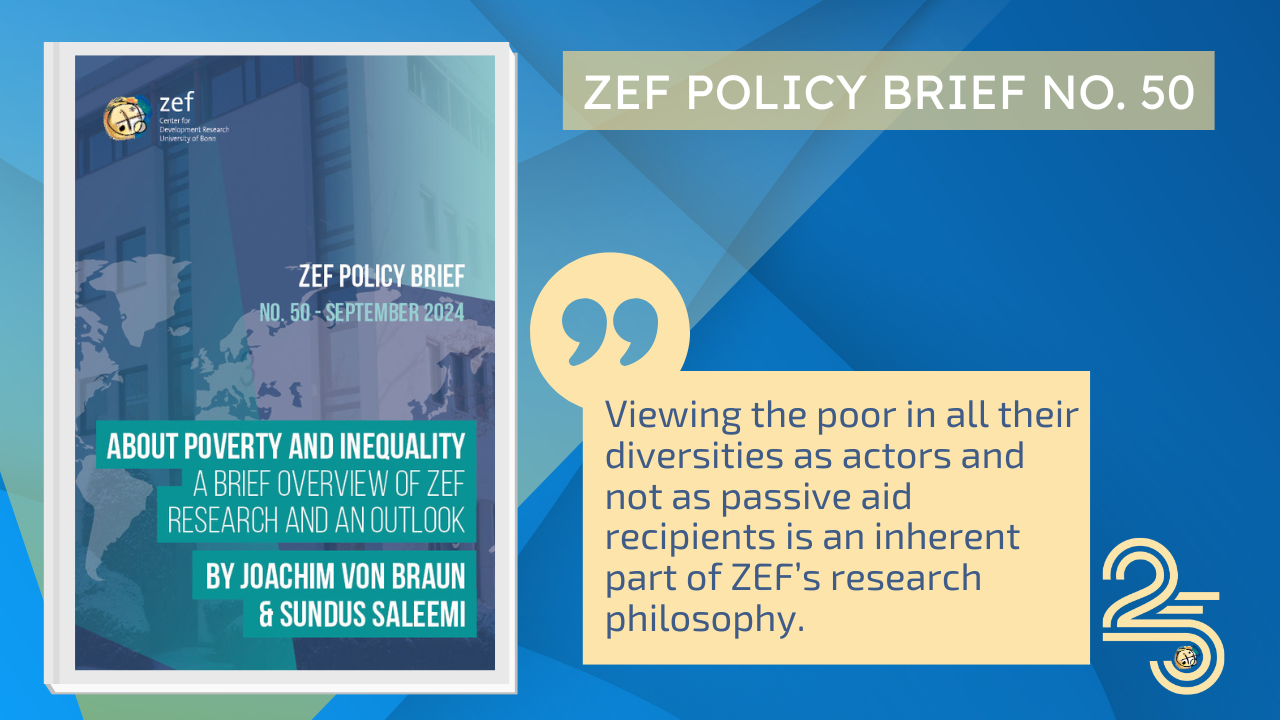Artificial intelligence and robotics offer opportunities but also carry risks. Thus, future research should ensure that AI benefits are accessible to the poor and marginalized, while mitigating potential negative effects.
Poverty: Integral ZEF-research
Since its inception, ZEF has selected poverty and inequality as integral research themes and committed itself to undertaking inter and transdisciplinary research in this area. ZEF’s research in the area of technological and economic change explicitly included poverty reduction as a priority research area, besides globalization and trade as well as technologies (i.e. information and communication technology and biotechnology). ZEF has published more than 250 research publications on poverty and inequality since the institute’s establishment.
ZEF research consortia
Undertaking and disseminating comprehensive, empirical, policy-relevant research with the aim to reduce poverty in developing and emerging economies is among ZEF’s raison d’être. Hence, poverty and its associates; deprivation, marginality, hunger, food insecurity, malnutrition and inequality have remained a critical focus of ZEF research. ZEF’s research projects and consortia encompass a range of critical backwards-and-forward-linkages to poverty, such as done within the large research program on agricultural innovations in Africa (PARI). Long-running collaborative research partnerships with universities and institutions in developing countries have examined poverty reduction in and vis-à-vis farming and agriculture, markets and trade, land use, urbanization and migration – thus, ZEF has been supporting developing countries in enhancing their research capacities.
Policy impact
Providing robust scientific evidence of how interventions have impacted outcomes along with conveying assessments of externalities to policymakers has been a key part of ZEF’s poverty-related research activities. Insights from ZEF-research on poverty have regularly been considered by political bodies, including the United Nations in the context of their summits, the German Government and the European Union. Besides, governments of countries in the Global South have drawn on ZEF-research findings related to poverty.
Read the full text in ZEF Policy Brief no. 50 on Poverty and Inequality by Joachim von Braun, former ZEF-Director and currently Distinguished Professor and Sundus Saleemi, former Senior Researcher at ZEF.



Leave a Reply